I couldn't stand Huel - but after using it for a month, I just can't get enough
Save money and live heathy
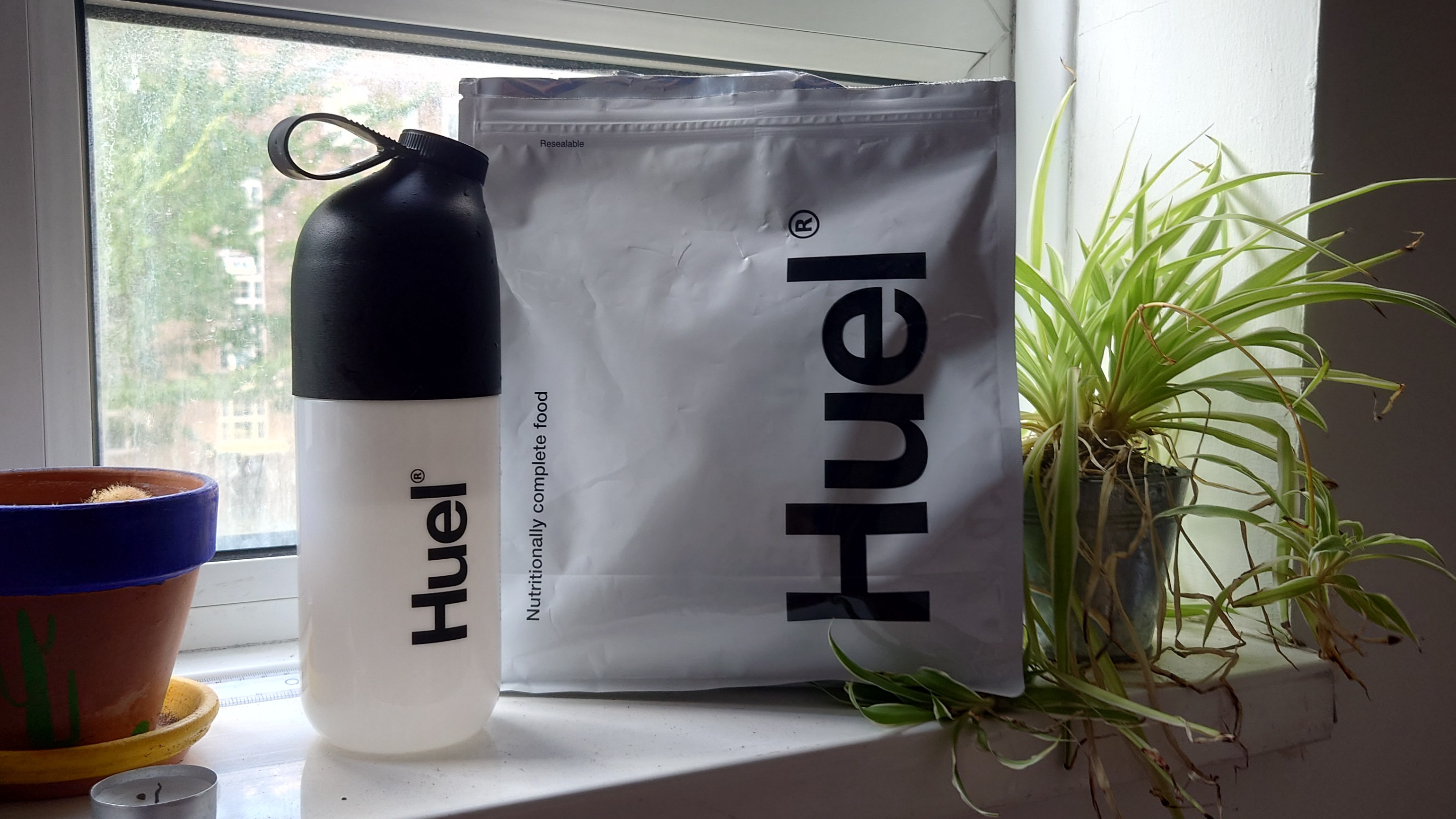
Sign up for breaking news, reviews, opinion, top tech deals, and more.
You are now subscribed
Your newsletter sign-up was successful
Huel is many things, depending on who you ask. Ask fitness fans and they'll tell you it's a kind of protein shake. Ask health fans and they'll tell you it's a meal replacement powder. Ask people who need to be factually accurate all the time, and they'll tell you it's actually the name of the company that makes products including Huel Powder, not the name of the powder itself, despite colloquially having derived that name.
Look at Huel's website and you'll see it sits somewhere in the middle of the Venn diagram of those definitions and more. It's described as "nutritionally complete food" yet "not a diet product", one that " has not been designed as a weight loss product but can be used as part of a fat loss diet". Pictures show athletic-looking models drinking Huel in sportswear, which Huel also sells.
Equally, the fact that the standard powder costs "£1.51 per meal" (or the equivalent in the US) is a big selling point, as is the hot food equalling "£2.66 per meal". Compared to the average cost of a meal deal or lunch out, that's cheap.
I first heard of Huel a few years ago, but was immediately put off by the name - why give your food company a name so similar to 'gruel'? And the abundance of unfit middle-aged men you'd see wearing Huel t-shirts and proudly displaying the Huel shaker was enough to write Huel off as a symptom of a mid-life crisis.
But like Huel's multi-strand self-presentation, my new interest in Huel came about for several different reasons – I was looking for ways to save money on food, I wanted a method to lose weight that wasn't as time-consuming as regular exercise, and I didn't want to go on a diet that could impact my love of food and cooking.
So when a friend mentioned they used Huel as a meal replacement, I decided to put away my ire at the horrible name and embark on a Huel diet, to see what all those middle-aged men were raving about.
Now I'm admittedly not a fitness expert, a financial guru, or a dietician, so don't expect these insights to be the wisdom of the oracles. But Huel isn't solely designed for that kind of user - in fact, I'd say I'm its target audience. So hopefully my story can act as a guide.
Sign up for breaking news, reviews, opinion, top tech deals, and more.
The first bite
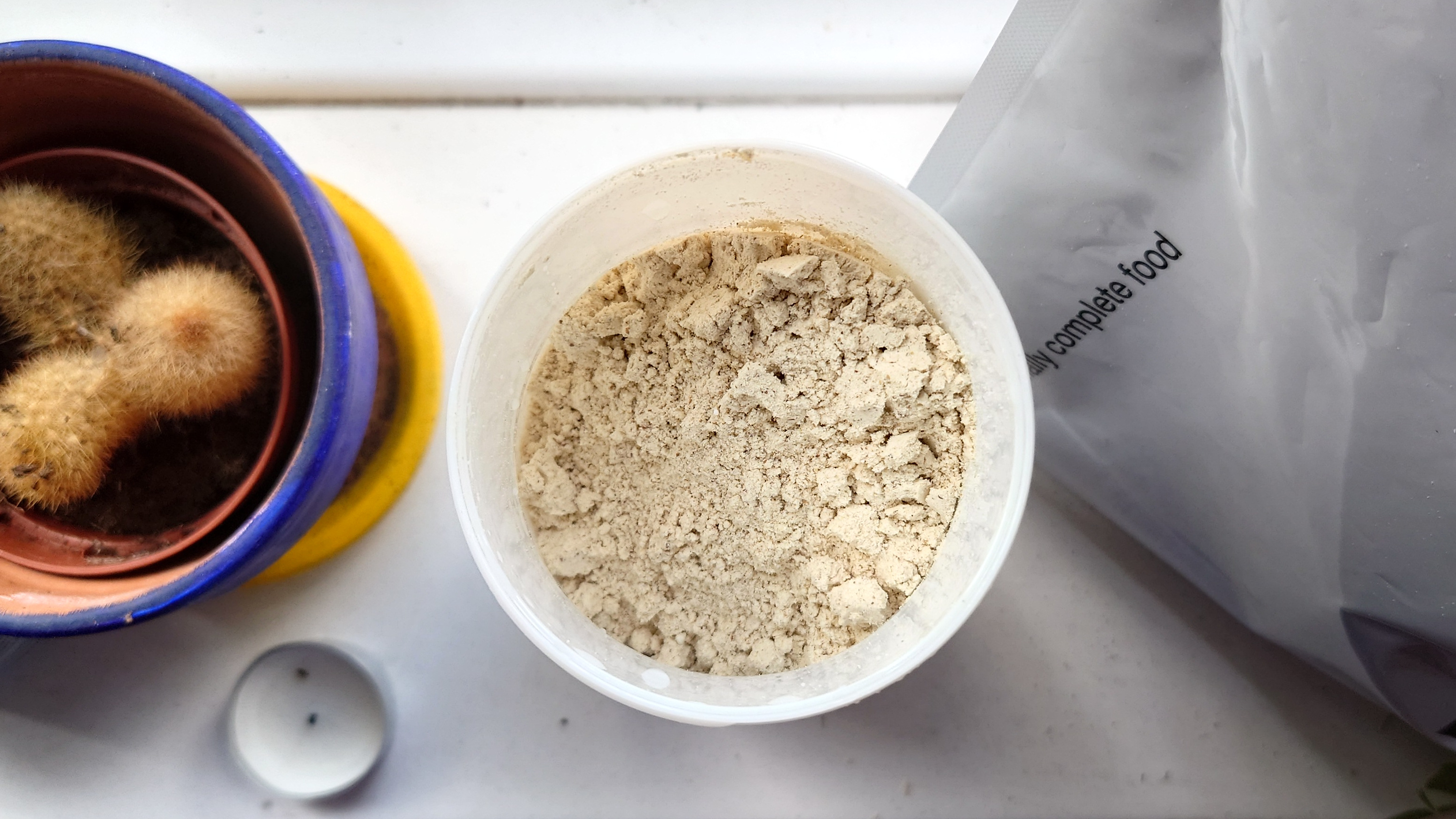
Ordering Huel is pretty easy - it's an online-first brand after all, with a website designed to funnel you into making your first order. The fact I had a referral code for a discount didn't hurt either.
Two red flags did fly when making my first order. First, you have to order two bags at once (each one has 17 meals), which means you're paying quite a bit for a meal powder you haven't even tasted yet. Second, you're encouraged (thanks to a 10% discount) to set up a subscription, with another delivery scheduled for the near future.
Sure, subscriptions like this are easy to cancel as soon as you've started them, but it's just as easy to forget until another bag is delivered. Some brands survive through this business model alone.
But I figured I can write about this for work, so it's basically a business expense, and pressed the order button on one bag of vanilla-flavored powder and one bag of salted caramel flavor.
When the bags arrived, along with a shaker, two scoops and a free T-shirt, my first impression was annoyance at how soft the tee felt. I'd made enough snide remarks about people wearing these in public that I'd resigned myself to a fate of never wearing it around people, no matter how nice it felt.
My second reaction, though, after mixing two scoops of the salted caramel powder with the required amount of water, shaking it and taking the sip, was horror - what have I just spent loads of money on?
There's no getting around it - Huel drinks do not taste good. They're oaty, but not in a tasty way like porridge, thick and clumpy yet somehow also watery in consistency. It's a far cry from the healthy smoothies or milkshakes I was expecting. Even the flavored versions basically amount to a war on tastebuds.
I struggled to get my first Huel down me, between the disagreeable taste and the alarm bells ringing in my head telling me I'd made a terrible mistake. I decided then and there that Huel wasn't for me.
Obviously, I changed my mind - I'd just spent lots of money on over 30-meals worth of Huel that I still needed to get through. Also, TechRadar's fitness editor asked me to write a feature about my experience if I managed it for a month. So I labored on.
Days turn to weeks
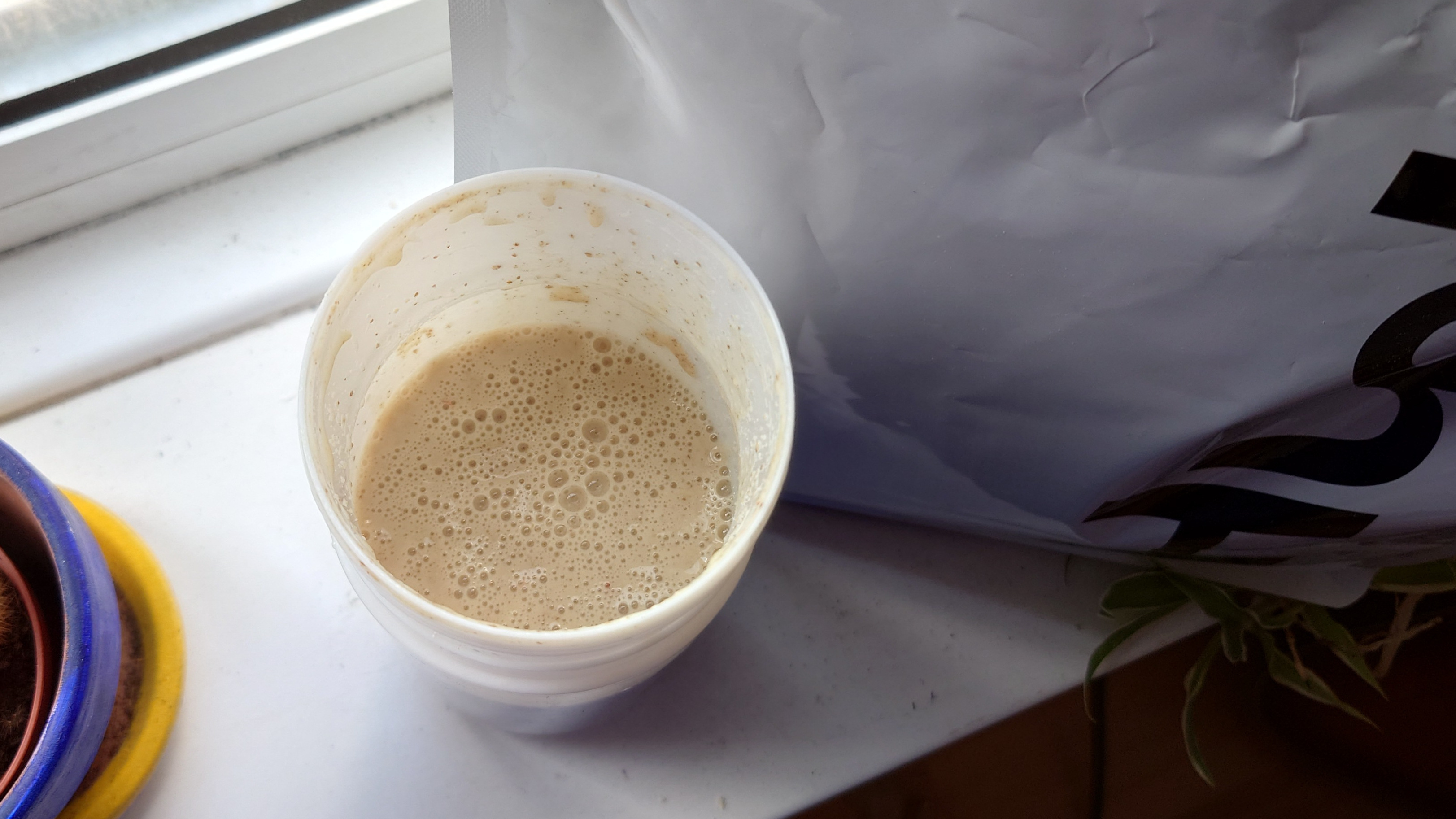
I love cooking, and trying to incorporate new ingredients into my dishes (without resorting to online recipes) is one of my favorite challenges. So I decided to treat Huel as just another challenge: how do I make this palatable?
A co-worker mocks me for one such attempt: he walked in on me pouring a hot chocolate into my Huel mix. Not only did early attempts like this ruin the whole 'health' and 'money-saving' reasons I started taking Huel, but they didn't actually have that much impact on the flavor of the mix.
In fact, my method for making it more palatable was surprisingly easy - simply chilling the drink for a while before consuming it made it a lot more pleasant. I won't say I like the taste of it now, but I certainly don't hate it anymore. Plus, I got better with the rhythm of the shaker, so learned how to stop the drinks from being as lumpy.
Once I'd cracked that code, and started having Huel regularly for lunch (or occasionally for breakfast if I had lunch plans), I noticed a few things. One was the time I'd claw back - when working from home, I'd often spend the whole lunch break preparing food and maybe going for a short walk to see the sun, but when that lunch was just a quick shaker of Huel, I had a lot more spare time. I could go on longer lunch runs or spend time reading in the park.
When I'm working in TechRadar's office, my lunch is generally the £3.50 meal deal from our local shop (I've tried meal prepping, but good luck finding the time to prep every week). But when that lunch is Huel - £1.50 per meal, remember - I'm saving about £6 each week. That's enough for... one whole pint of beer in London. Nice.
It wasn't all sunshine and roses though. My biggest problem, especially in my early Huel days, was hunger. A 500ml shaker of powder juice just isn't as filling as a wrap for lunch, nor is it as spiritually fulfilling as real food.
For my first few days of Huel, my stomach was constantly growling, as though I was just skipping lunch. This sometimes resulted in me snacking between Huel time and dinner - obviously not a great thing to do for health or money reasons.
It took my body about three days to acclimatize to this new kind of diet - that doesn't mean I stopped being hungry, I just didn't need to eat snacks to keep me going. I could then get to dinner time without needing extra food. I can see why some people looking to gain weight pair shakes like this with their standard lunches - Huel isn't filling.
A month on
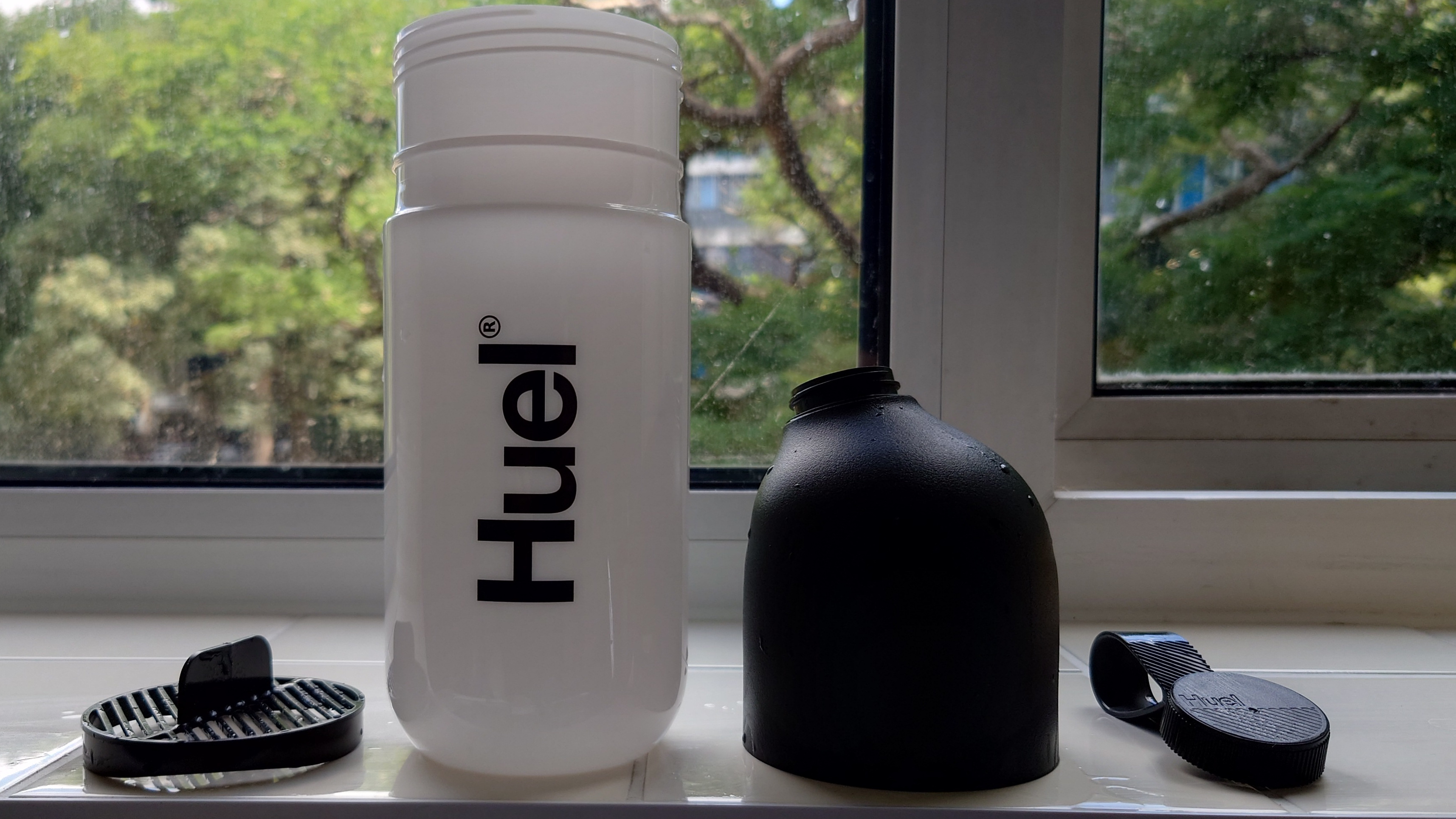
My attitude towards non-Huel food is probably the biggest impact the diet has had on me but in a largely positive way.
Now that one of my meals is easy to plan, I've found myself thinking a lot more about dinner. I've returned to the kinds of ambitious cooking projects that I used to love before full-time work stole too much of my time.
Meals that I cook also last a lot longer, now that I'm not eating leftovers for lunch as well as dinners. Spending more prep time on them doesn't feel as much like a waste when I don't need to repeat it every day.
I'm a lot more conscious about what I eat for each meal too. If I'm being really healthy for lunch, I don't want to waste that precedent on a frozen pizza for dinner or fatty loaded fries (unless it's loaded with a homemade vegetable mix or bean chili).
So I've stopped eating carb-based meals and focused more on some of my favorite healthy ingredients like butternut squash, red kidney beans and bell peppers. My cooking has gone through a renaissance since Huel gave me the push I needed.
Unfortunately for my co-workers, this also means that baking is an unhealthy and unnecessary extra - so no homemade cookies for the team.
When I've suggested Huel to people, they've typically told me "oh no, I like cooking too much to consider substitutes like that" (typically people who consider chicken and veg a well-rounded meal). But Huel has actually helped me focus more on what I eat and what I cook.
I snack less too, for basically the same reasons. Sure, I've sometimes got a packet of nuts somewhere nearby (they can be a great way for vegetarians like me to get some nutrients they don't get from meat), but I'm not chomping through a packet of biscuits each week. And I haven't touched a dessert food in ages!
My body has clearly adapted to this new healthy diet too - when ice cream and cupcakes were handed out one day in the office, this one-two knock-out punch of sweet foods nearly wiped me out.
There is one annoying knock-on effect though, and it's one that I haven't solved yet - since starting Huel I've found myself much more tired than normal.
I used to wake up at 6:30am each day, to do some creative writing or just read before the day really starts. Now, getting up at this time is next to impossible - even my proper wake-up alarm an hour later is a nightmare.
I'm assuming that my new healthier diet is affecting my energy levels, something that I'm going to need to adapt to if I keep doing Huel for the foreseeable future.
So, will I continue Huel?
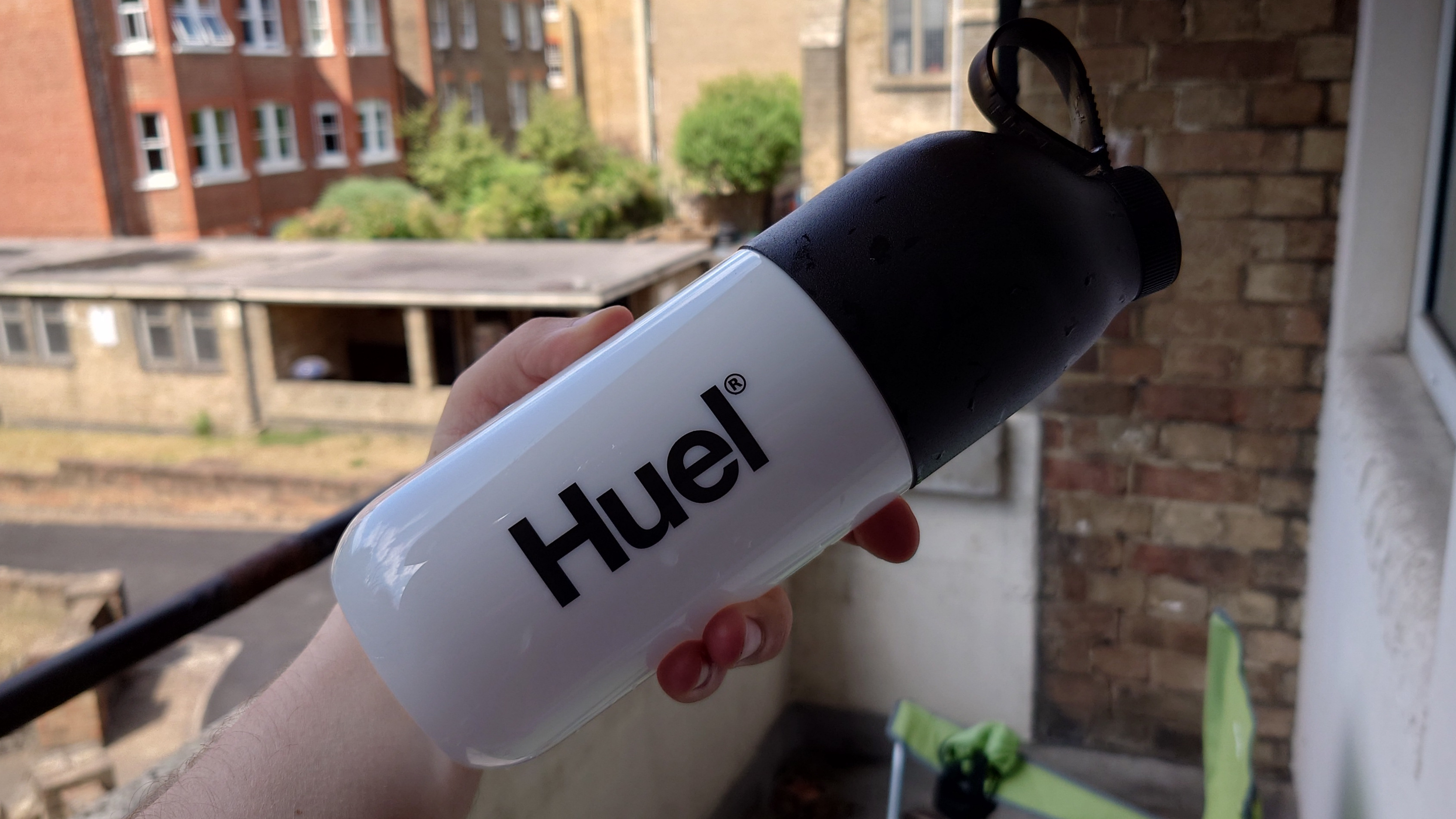
At the time of writing, I've been Hueling every day for a month - I've finished one powder bag (the salted caramel one, which I grew to like more than vanilla), and the other is on its way out too.
It's time to renew or cancel my subscription before the next bags are dispatched - and making the decision to reorder was an incredibly simple one. Huel has become an integral part of my diet, so my only dilemma was which flavors shall I order? (I've decided to go for banana and berry for the next ones, though two fruit options at once sound a bit much so I may swap one for mint chocolate).
My decision (to reorder Huel, not the flavors I'm picking) would've surprised me a month ago, when my first taste of Huel gave me conniptions.
But experimenting with Huel, and working out how to fit it into my diet, has had great knock-on effects. I'm saving money, getting time back, and enjoying a renewed focus on the food I eat. I haven't eaten this healthily in years.
The fact that this food is vegan and environmentally friendly lets me feel good about myself too.
For me, Huel isn't like a diet you'll typically embark on for one reason (weight loss, muscle growth, etc). No, like the multiple strands of its sales pitch, there are loads of small benefits to Huel that I've really come to enjoy.
So I'm no longer wondering whether I'll carry on with Huel. No - the brand also offers dehydrated hot meals, snack bars, high-protein powders, and plenty of new flavors I'd like to experiment with too. So what I need to figure out now, is how far down this rabbit hole I'll go.
- Maybe I can put some of the saved money on one of our best running watches

Tom Bedford is a freelance contributor covering tech, entertainment and gaming. Beyond TechRadar, he has bylines on sites including GamesRadar, Digital Trends, WhattoWatch and BGR. From 2019 to 2022 he was on the TechRadar team as the staff writer and then deputy editor for the mobile team.